Measuring Impact That Matters: mediaX Member Workshop
Everything we do today makes a difference for the future we want to create. Current actions link to long term impacts, and long-term visions can be realized through conscientious attention to measurable outcomes and their ecosystemic relationships.
This workshop is for leaders and influencers from mediaX member organizations. We’ll explore how business goals can be linked to outcomes that yield BOTH productivity for the company and positive outcomes for humankind. It’s an opportunity for discussion and networking around models and tools for leveraging technology-based innovation to achieve positive outcomes for people.
This Workshop is FULL. Please email Addy Dawes with questions.
Impact Investing and Corporate Philanthropy
Paul Brest, Former Dean and Professor Emeritus (active), at Stanford Law School
Self-funding Marketing and Growth Ecosystems
Lara Lee, President & Founder, Creative Renewal
Panel on Emerging Visions: Human-centered Initiatives in mediaX with Distinguished Visiting Scholars
Neil Jacobstein: Making Better Decisions
Walter Greenleaf: AR/VR Technologies for Wellness
Susan Stucky: Conversations with Empathic Machines
Aman Kumar: Consumerism in the Enterprise
Bruce Cahan: RE-OS Real Estate Operating System
Value-based Performance Measures
Periodic Table of Quality of Life Elements and Global Impact Standards
Working Teams on Value-based Performance Measures for mediaX Use Cases
Details:
This Workshop is FULL. Please email Addy Dawes with questions.
Presenters
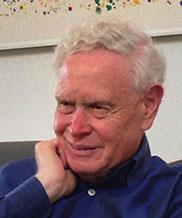
Paul Brest is Former Dean and Professor Emeritus (active), at Stanford Law School, a lecturer at the Stanford Graduate School of Business, a faculty co-director of the Stanford Center on Philanthropy and Civil Society, and co-director of the Stanford Law and Policy Lab. He was president of the William and Flora Hewlett Foundation from 2000-2012. He is co-author of Money Well Spent: A Strategic Guide to Smart Philanthropy (2nd ed. 2018), Problem Solving, Decision Making, and Professional Judgment (2010), and articles on constitutional law, philanthropy, and impact investing. His current courses include Problem Solving for Public Policy and Social Change, and Advanced Topics in Philanthropy and Impact Investing. He also the creator of the open and free online interactive course Essentials of Program Strategy and Evaluation, and the instructor in an online course, Essentials of Nonprofit Strategy, offered by Philanthropy University.
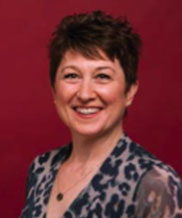
As a Fortune 500 executive, operator with extensive P&L management experience, corporate intrapreneur, and consultant to senior leaders from startups to the C-suite, Lara Lee has spent over 30 years pioneering new territory and leading transformational change. Named a “Master of Innovation” by BusinessWeek in 2006, she combines techniques from strategy, design, storytelling and the social sciences to take brands into new markets, capitalize on untapped potential and create experiences worth sharing – always beginning with a focus on deeply understanding people and their unmet needs. Over 15 years as an executive at Harley-Davidson she developed a rider training business to fill the customer pipeline, built a museum to serve as a self-funding marketing machine, pioneered online community engagement and direct-to-consumer retailing, turned cost centers into money-makers and set the foundation to double international sales at the $6 billion company. In 2019 Lara founded Creative Renewal, a consulting consortium that helps companies create sustainable growth strategies and the cultures that make them stick.
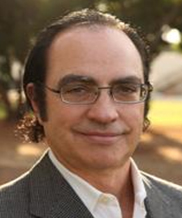
Neil Jacobstein Co-chairs the Artificial Intelligence and Robotics Track at Singularity University on the NASA Research Park campus in Mountain View, California. He served as President of Singularity University from October 2010 to October 2011. As a mediaX Distinguished Visiting Scholar, his research focuses on augmented decision systems. He Chaired AAAI’s 17th Innovative Applications of Artificial Intelligence Conference, and continues to review technical papers on the IAAI Technical Program Committee. Neil has served as a technical consultant on AI research and development projects for: DARPA, NSF, NASA, NIH, EPA, DOE, the U.S. Army and Air Force, GM, Ford, Boeing, Applied Materials, NIST, and other agencies. He was CEO of Teknowledge Corporation, a pioneering AI company, where he worked on AI applications systems for industry and government. He worked as a graduate research intern in Alan Kay’s Learning Research Group at Xerox’s Palo Alto Research Center (PARC), and was a consultant in PARC’s Software Concepts Group.
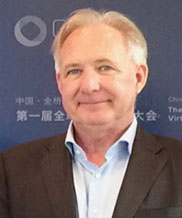
Walter Greenleaf is a behavioral neuroscientist and a medical technology developer working at Stanford University. With over three decades of research and development experience in the field of digital medicine and medical virtual reality technology, Walter is considered a leading authority in the field. Dr. Greenleaf has designed and developed numerous clinical systems over the last thirty-three years, including products in the fields of: surgical simulation, 3D medical visualization, telerehabilitation, clinical informatics, clinical decision support, point-of-care clinical data collection, ergonomic evaluation technology, automatic sleep-staging systems, psychophysiological assessment, and simulation-assisted rehabilitation technologies, as well as products for behavioral medicine.
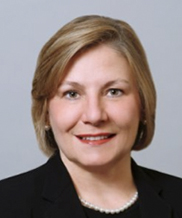
Susan Stucky leverages strategy and implementation planning to develop new ways of working. The introduction of new technology or new processes disrupts current work practices in any organization. Too often new work practices are left to evolve on their own, resulting in ways of working that don’t align with strategic intent. Now there are principles, methods and yes, process, to help ensure successful adoption. These are based on several decades of experience in both large organizations and small. They are based on innovative perspectives such as design thinking, service-dominant logic and decades of experience in managing change.
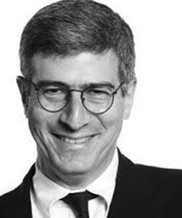
Bruce Cahan is a Consulting Professor in Stanford’s School of Engineering, where he designs and applies new theories for creating a financial and insurance marketplace that improves regional quality of life systems. He is also CEO and co-founder of Urban Logic, a nonprofit that harnesses finance and technology to change how systems think, act and feel. He is an Ashoka Fellow and a CodeX Fellow at Stanford’s Center for Legal Informatics. Mr. Cahan was trained as an international finance lawyer at Weil Gotshal & Manges in NYC (10 years) and as merchant banker at Asian Oceanic in Hong Kong (2 years).
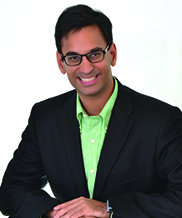
Aman Kumar is a senior product marketing manager at Facebook, where he helps define and develop new initiatives for the company in enterprise software. Prior to this he was head of operations innovation at SAP, promoting the business agility and efficiency of Europe’s largest software company. He is also special advisor to the CIO of the Republic of Estonia and advisor to startups in Silicon Valley, Tallinn, and Boston. Aman was previously head of strategic marketing at MobileIron, responsible for strategic planning, user-facing product definition, and application partnerships for the company before its IPO. Prior to MobileIron, Aman was an engineering program manager at Apple, an associate product manager at Google, and interned at the world’s largest hedge fund.